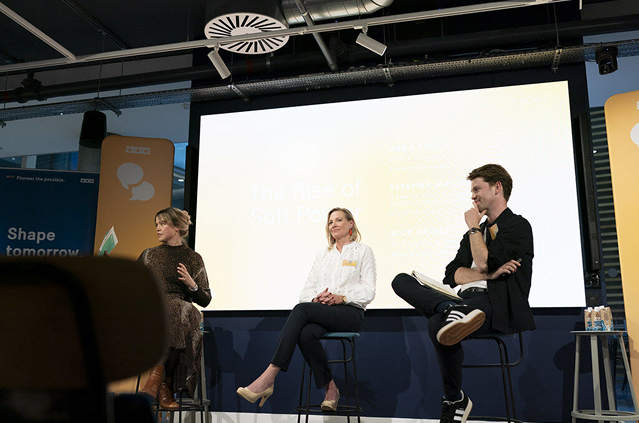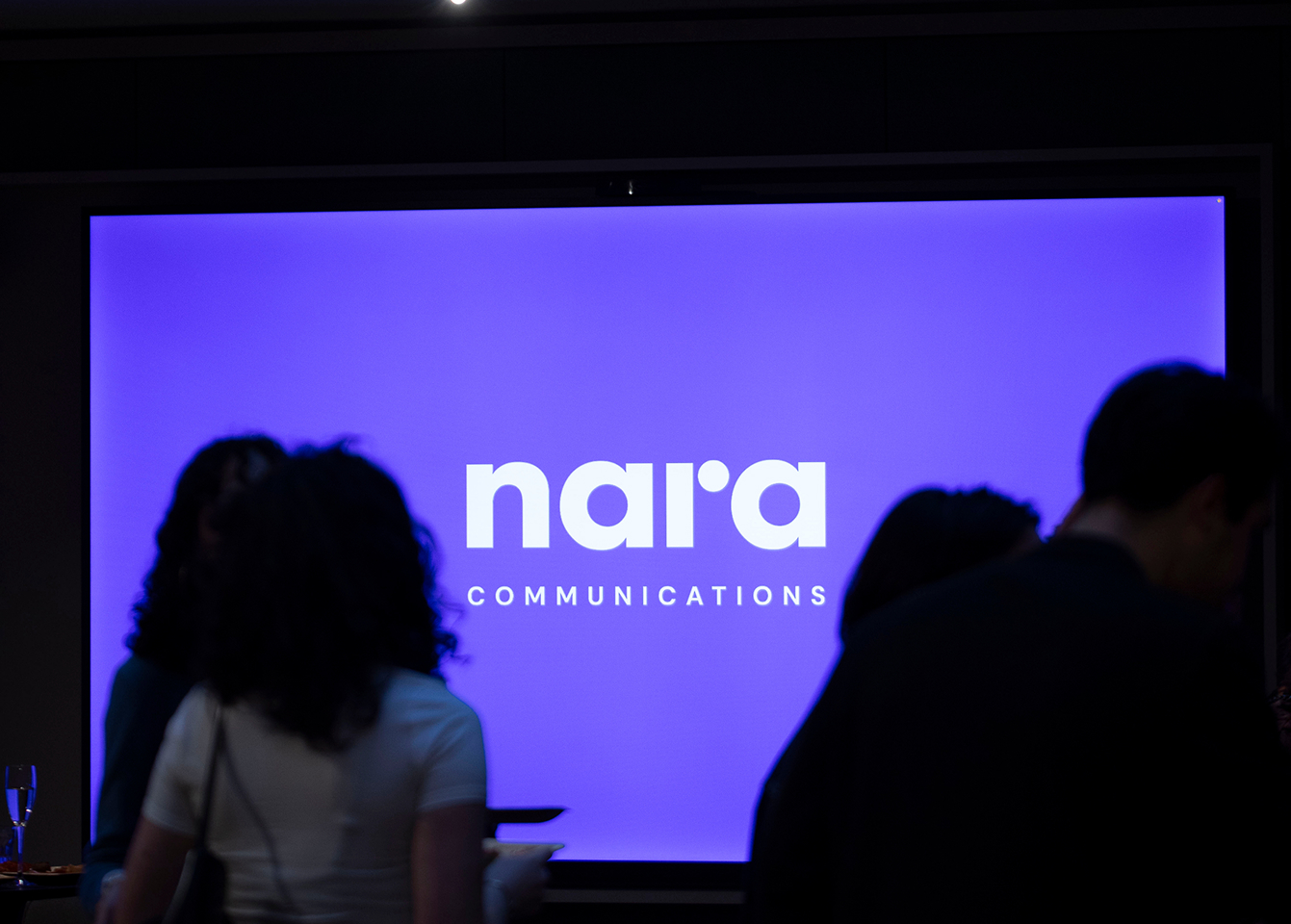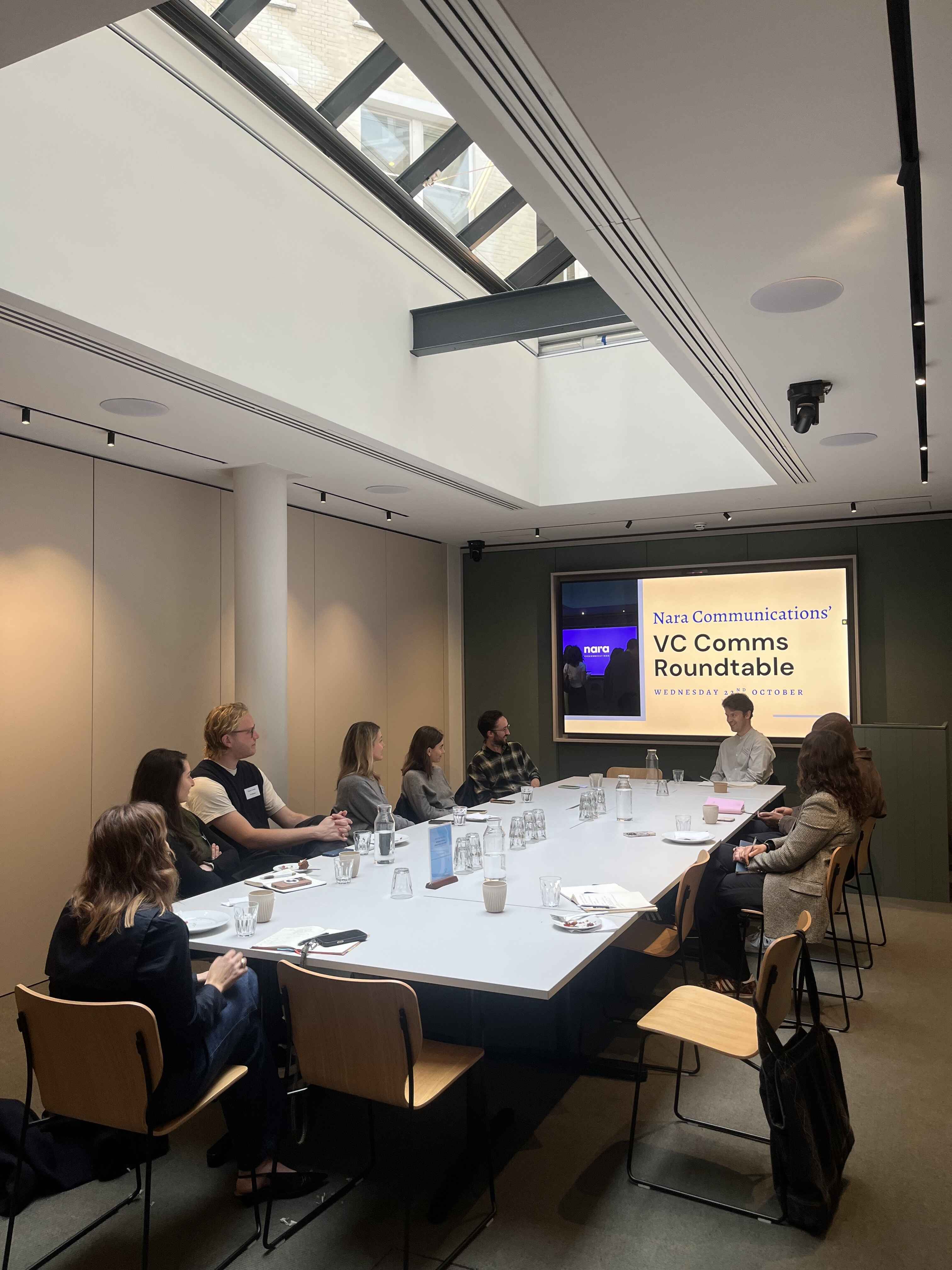This October, we convened a selection of Heads of Comms, Marketing, and Platform from some of Europe’s leading VC firms at Nara HQ to discuss what was on their minds. In attendance were representatives from Ada Ventures, Antler, Northzone, Singular, Cherry Ventures, Outward and LocalGlobe.
The session was under Chatham House rules, a convention we would hate to break in the company of such esteemed communications professionals, but here’s a glimpse into what was discussed.
Optimists v Pessimists
The first challenge put to the group was whether it’s especially hard for brands to get their stories out there right now. The contributing factors to this were:
Contracting newsrooms
Fewer journalists means fewer routes to distribution through earned media. This disproportionately hurts up-and-coming companies that are trying to break through; journalists will always have to report on big organisations like OpenAI, whereas feature pieces on novel business ideas (i.e. startups) are going to be in shorter supply.
Decentralisation of information sources
The converging forces of newsroom contraction, the demise of Twitter/X as society’s centralised town square, and the proliferation of new media sources - podcasts, Substack and newsletters etc., many of which are pay-to-play - mean brands need to think about not just how, but where to communicate.
This is a sharp challenge for companies with smaller marketing budgets. Where should they focus? Could they end up investing in a channel that with a few tweaks of an algorithm, changes overnight (e.g. the 2022 Twitter acquisition)?
Proliferation of AI content
‘Slop’, of course, came up. How can VCs and their portfolios cut through the wide proliferation of AI-generated content? Anyone can now become an 8 out of 10 ‘thought leader’ on any subject. How can you go about cutting through this noise?
Despite all this, many thought there were good cases to be made for optimism.
--------
In particular, attendees were excited about the ability for founders today to ‘go direct’ - distributing information via a senior spokesperson’s LinkedIn or X profile, and building audiences and followings without the need for gatekeepers like journalists. The growth of this direct model was seen as a playing field leveller and a great opportunity for early-stage companies.
But perhaps the best antidote to any roundtable pessimism was the calm reminder that the world of comms and marketing has always been in flux. It’s ever-changing, be that the platforms available or the techniques that cut through.
Adaptable marketing teams will always be able to take advantage of the latest opportunity or landscape shift, as long as they stay plugged in.
LLM Search
GEO, the LLM-oriented descendant of SEO, was discussed at length. How much should startups focus on ChatGPT/Claude/Perplexity discovery? Will anyone Google anything ever again? How does this shift affect marketing budget allocation?
We conducted a (rather informal and self-interested) straw poll of the room, asking the attendees whether they would use AI to source a PR agency for their firm.
Only one hand went up. And even they explained they would ask ChatGPT more out of curiosity than anything else.
The consensus was that this is an emerging trend, and for some companies LLM-visibility will be essential, but for now, it hasn’t changed marketing strategies quite as much as some are proselytising.
Big bets
We wrapped up by going around the table discussing what everyone’s 2026 ‘big bets’ might be. That could be a new channel, messaging strategy, or allocation of budget and focus.
Some did plan to go all in on LLM strategies. Another talked about having a less London-centric marketing view.
However, the prevailing big bet seemed to be on events.
We agreed that the proliferation of AI-generated content was making the internet a less interesting place, a thesis that was backed up by a recent piece by John Burn-Murdoch (the FT’s Chief Data Reporter) on declining social media usage.
Consequently, we predicted that 2026 will be a year in which people search for more in-person experiences.
There will be a rekindled desire to get in rooms with people, and to enjoy the spontaneity of human interaction, at a time when AI is making everything feel boringly predictable. This could be via community-building networking events, speaker slots at major conferences, booths at trade shows, or moments of closed-door knowledge-sharing.
This felt like an encouraging note to end on, as we concluded this first in-person, roundtable of our new series.
More from the blog

PR Week 30 Under 30: Nick Baines

PR Week 30 Under 30: Nick Baines
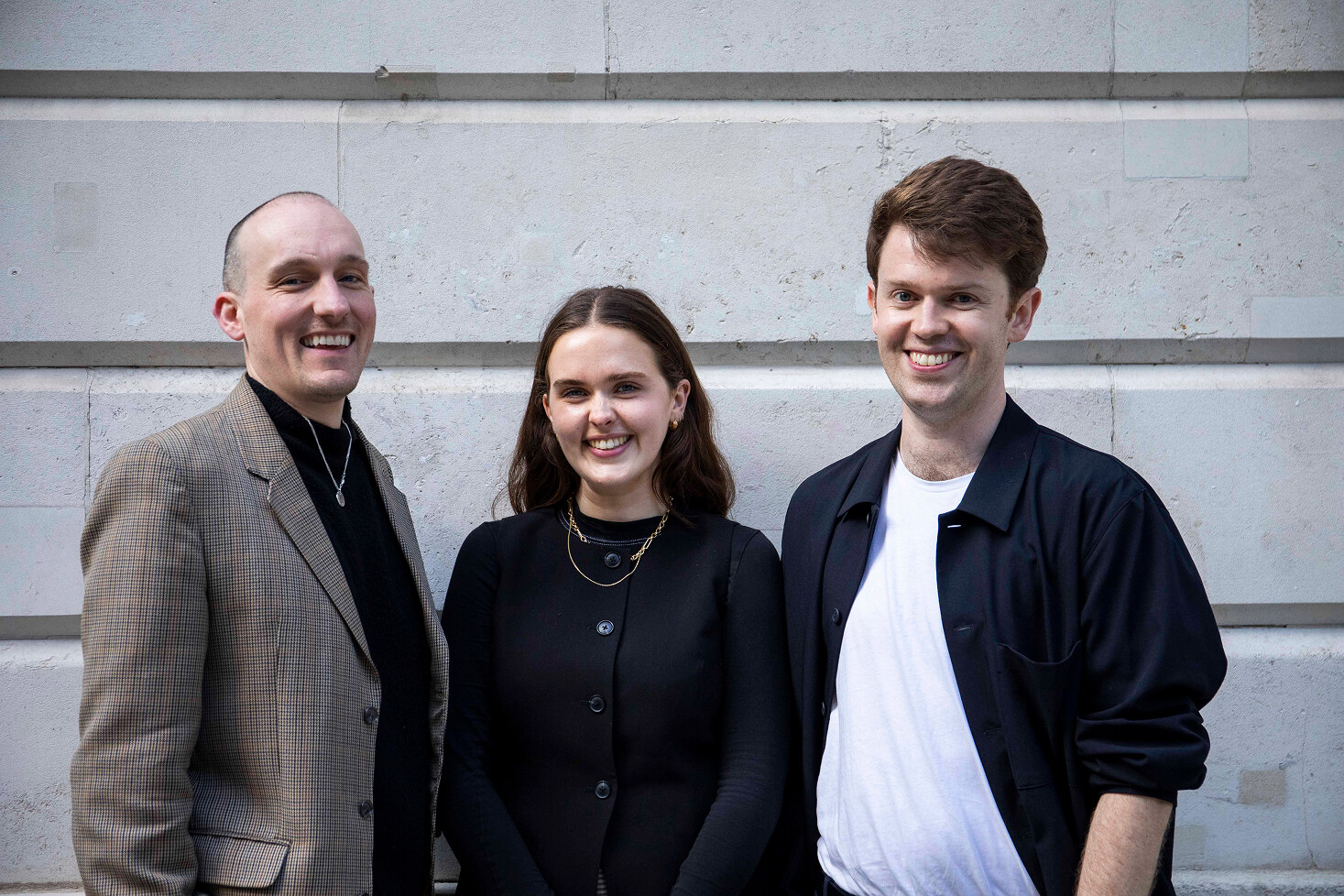
These are the top UK-based PR agencies for startups and scale-ups in 2024

These are the top UK-based PR agencies for startups and scale-ups in 2024
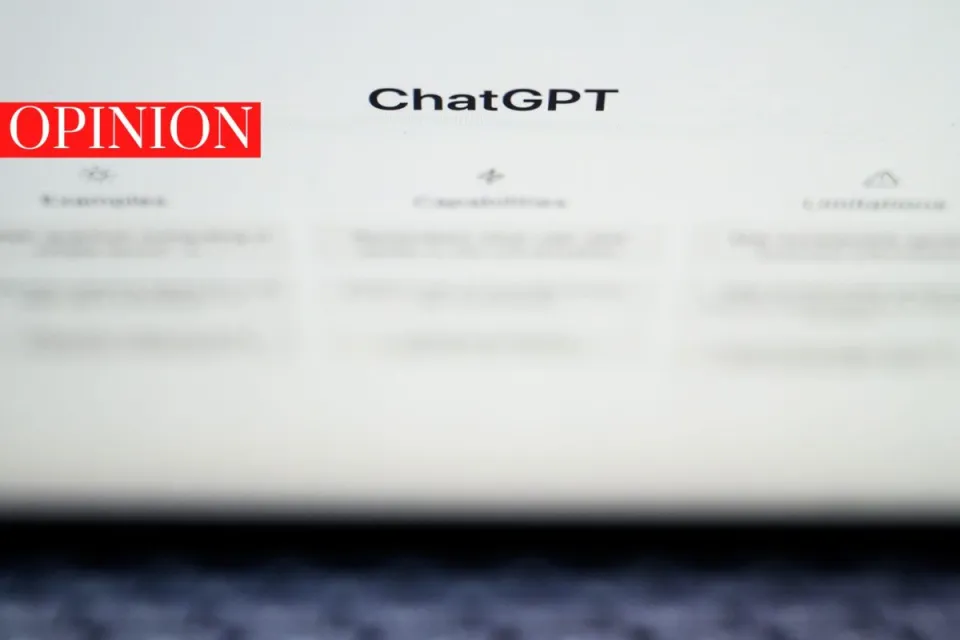
City AM: Deepfake videos and artificial intelligence could be the rebirth of trust in media

City AM: Deepfake videos and artificial intelligence could be the rebirth of trust in media
Want to work with us?
Book an introductory call with the Nara senior team to find out how they could help your brand grow.

